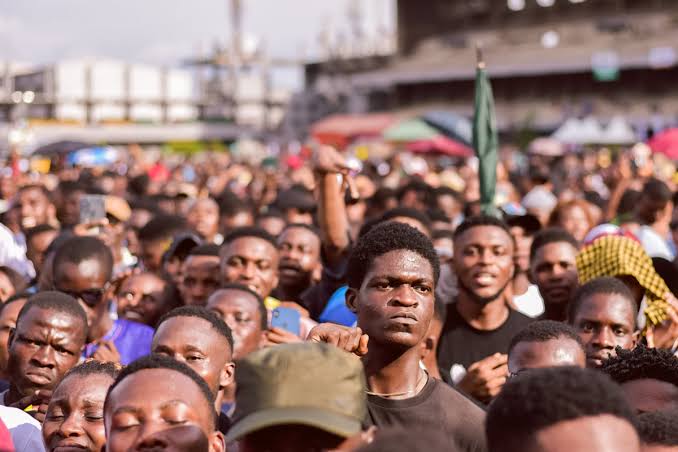Africa
Youth Unemployment And Innovation: Navigating Nigeria’s Crossroads -By Ladi Maxwell
The destiny of Nigeria lies in the hands of its young generation—brimming with talent, ideas, and dreams. What they require is opportunity, not sympathy; support, not neglect. If properly harnessed, this generation will not only redefine Nigeria’s economy but also inspire Africa and the world at large.

Nigeria, long celebrated as the “Giant of Africa,” finds itself at a critical crossroads. On one hand, the nation boasts one of the youngest and most vibrant populations in the world. On the other, it faces an alarming surge in youth unemployment coupled with underdeveloped support for innovation. This dual challenge threatens to undermine the country’s aspirations for sustainable growth if left unaddressed.
Recent data from the National Bureau of Statistics (NBS, 2024) reveals that unemployment remains stubbornly high, with young people making up the majority of those without jobs. Each year, thousands of graduates complete their studies, yet many remain unable to secure meaningful employment. The pressure is mounting as Nigeria’s population, projected to surpass 400 million by mid-century, continues to grow faster than the economy can create jobs.
For many young Nigerians, the search for formal employment has turned into a prolonged ordeal, leading to disillusionment and frustration. The psychological toll is severe, with joblessness linked to feelings of exclusion and hopelessness. Beyond the individual, the wider society bears the cost, as unemployment often fuels migration, social unrest, and even insecurity when idle youth are lured into violent or criminal activities.
Amid these grim realities, innovation offers a ray of optimism. Across the country, young people are rewriting their stories through creativity, resilience, and technology. Lagos, often dubbed “Africa’s Silicon Lagoon,” has become a hub for startups, with sectors such as fintech, e-commerce, health tech, and agritech attracting global attention. Homegrown companies like Flutterwave and Paystack have shown that Nigerian youth possess not only talent but also the vision to compete on the global stage.
Yet, the potential for innovation is far from fully realized. Structural barriers—poor infrastructure, inconsistent government policies, limited financing, and an unreliable power supply—continue to stifle many brilliant ideas before they can take shape. For every successful startup, countless others fail due to lack of support, mentorship, or resources.
Education remains at the heart of the issue. Nigeria’s academic system still leans heavily on outdated models that emphasize theory over practice. While graduates are produced in their thousands, many leave without the skills demanded in today’s digital economy. A redesigned curriculum that integrates entrepreneurship, critical thinking, and digital literacy is urgently needed. Stronger partnerships between universities, industries, and government agencies could help prepare graduates for the rapidly changing labor market.
Policy reform is another vital step. To reduce youth unemployment, the government must foster an enabling environment where small businesses and startups can thrive. Streamlining bureaucratic processes, reducing taxation barriers for young entrepreneurs, and expanding access to credit facilities are practical measures that could make a huge difference. Additionally, initiatives such as innovation hubs, technology parks, and government-backed venture funds could serve as springboards for young inventors and business owners.
The private sector also bears responsibility. By investing in training programs, mentorship schemes, and apprenticeship opportunities, companies can help bridge the gap between education and employment. Paid internships, for instance, would allow students to gain hands-on experience while learning workplace ethics and culture—skills that cannot be taught in classrooms alone.
Furthermore, Nigeria’s diaspora community represents a valuable yet underutilized resource. Nigerians abroad have distinguished themselves in fields such as artificial intelligence, medicine, and engineering. By encouraging collaboration between diaspora experts and local innovators, the country can benefit from knowledge transfer, fresh perspectives, and global networks.
While challenges are daunting, they are not insurmountable. If Nigeria can combine its youthful energy with strategic investment in innovation and job creation, the nation could turn its unemployment crisis into a launchpad for growth. The resilience, creativity, and determination of Nigerian youth remain unmatched—what is lacking is the supportive ecosystem to unlock their potential.
Nigeria’s future depends on decisions made today. Choosing to empower its young population will not only address unemployment but also position the nation as a continental leader in innovation and development. The time has come for bold policies, strategic partnerships, and unwavering commitment to youth empowerment.
The destiny of Nigeria lies in the hands of its young generation—brimming with talent, ideas, and dreams. What they require is opportunity, not sympathy; support, not neglect. If properly harnessed, this generation will not only redefine Nigeria’s economy but also inspire Africa and the world at large.
LADI MAXWELL IS A 300 LEVEL STUDENT FROM MASS COMMUNICATION DEPARTMENT UNIVERSITY OF MAIDUGURI.

























